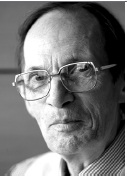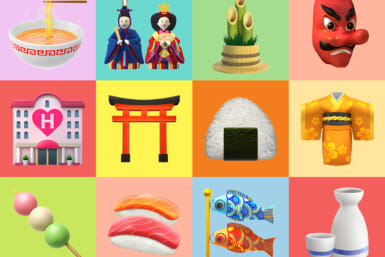by Henry Scott Stokes
There is a passage in a poem by Oscar Wilde that comes to my mind at this time of year-namely November:
I never saw a man who looked
With such a wistful eye
Upon that little tent of blue
Which prisoners call the sky.
It is taken from Wilde’s “The Ballad of Reading Gaol,” not to keep you in suspense as to the text.
Well, I never saw anyone else who had the look of Yukio Mishima, easily the most famous Japanese of his generation. But do we need to pay attention to him, you may ask, 33 years after his wretched death? Was he so admirable, you may wonder, if you have seen some of the wilder knockabout images that amused him; for example, of Mishima wearing nothing more substantial than a black jockstrap and a sailor cap and flexing his muscles against a huge Honda bike? Wasn’t he just a rather silly, ugly show-off, down to his last moment on earth?
You maybe right. He certainly enjoyed fooling around, as seen in another still more notorious photo of Mishima as St. Sebastian. He is shown with his wrists held up in the air by a rope, with the arrows eating into his bare chest. The photo was taken by Kishin Shinoyama in the late 1960s, and I don’t like it much either. Clearly, the man was out of his doggone mind.
Yes, but still, the fact is that he was an extraordinary human being. Let me compare him to someone who is still around today and who was, for a while, a person he enjoyed a drink with. A writer companion, a fellow novelist. The chap I have in mind is Shintaro Ishihara.
“Shintaro” is best known as governor of Tokyo today. Probably, if you are not Japanese, you have not read a single word he wrote-with the exception of a minor book of the 1980s called The Japan That Can Say ‘NO‘. Nothing by him was ever translated, that I know of, with the exception of this work, co-authored with the late Akio Morita of Sony. That book caused many Americans to think of our otherwise esteemed governor as no friend of the U.S.
Well, let me tell you, as a super-patriot Mishima left Ishihara standing right there. He was the real thing. “Shintaro,” to many Japanese, is a bit of a laugh.
He is no more a real right-winger than he is a great novelist. None of his stuff has been translated into English, because he can’t write that well. Mishima lamented the fact that this talented person-he liked Ishihara’s early writing-did not exercise his God-given powers, and instead wasted his time appearing on TV.
Ah, that Mishima! Maybe he was just jealous of Ishihara’s height and his good looks? Still, he had an appetite for life. He was a reacher-out. Should you want to know more of Mishima, please pick up the phone, or ask someone who speaks Japanese, and call 3268-3111. This is the main switchboard at the Defense Ministry, over there in Ichigaya, where Mishima died on Nov. 25, 1970.
You ask for extension 21904, and you get put through, assuming all goes well, to the military people who organize twice-daily tours; one in the morning, one in the early afternoon, to a memorial hall there which is a raw slice of history.
This Ichigaya hall-it stands fully within the compound of the Defense Ministry, just to one side, over on the left-commemorates Japan’s war leaders in World War II. One gets to visit the actual hall where they were tried in 1945-1948, and more…
There is a room that was used in this former military HQ by the late Showa Emperor. And there is a full-size replica of the balcony from which Mishima made a last speech. You can visit the not-very-large room, once the office of a four-star general-where Mishima died. You may take note of the cuts in the door frame where his sword hit the wood, and mark the spot where he committed hara-kiri. A lot of the original materials used in that room have been preserved.
However, is it worth the trouble of going over there for a tour that takes about an hour, and is in Japanese, I should also mention? Wasn’t Mishima a man of many faults? Of course he was. In my biography of him (The Life and Death of Yukio Mishima), written 30 years ago, I pictured him as no saint, but as a busy man who longed for what he got-fame.
“Life is short,” he wrote in a last note he left on his desk at his home in Magome. “But I want to live for eternity.”
Ah, that little tent of blue.
External Link:
Yukio Mishima at Wikipedia









